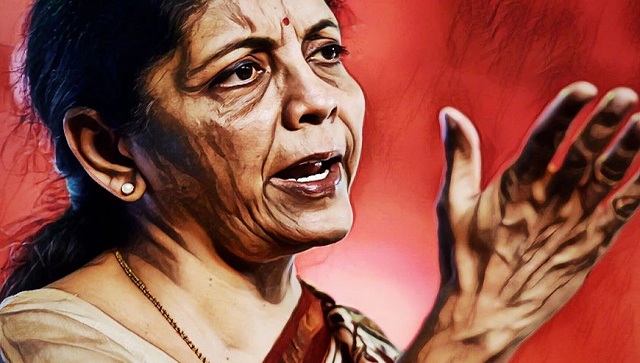The Union Budget is set to be presented by Finance Minister Nirmala Sitharaman today in the backdrop of rising worldwide inflation and low economic growth. The industry has huge expectations from the approaching budget from an Indirect Tax and Customs perspective towards the development of a ‘friendly tax system’ and bringing much-needed impetus to economic growth.
Changing amendments to GST
The taxpayers are facing challenges even after five years of implementation of Goods and Services Tax (‘GST’) due to growing compliances and perpetual amendments under GST laws. While many issues raised by the industry have been addressed from time to time, there are numerous concerns that still need consideration and action.
There have also been various discussions in recent times regarding the rationalisation of GST rates. However, there has been no resolution on this front. Needless to say, it would be beneficial for businesses and consumers if the government takes initiative for reducing tax slabs which would ultimately result in lower prices of final goods/ services in the backdrop of rising inflation in India and across the globe.
Amnesty scheme under GST
One of the main expectations from this Budget is prompt action to the request for an Amnesty. Considering the success of amnesty schemes for excise and service tax matters, the introduction of a similar scheme required under GST in order to settle the mounting litigation mainly procedural disputes among other matters such as fake invoicing will ultimately be reducing the burden on jurisdictional high courts. This will not only enhance the revenue for the Government but also reduce the administrative burden of GST officers in dealing with various proceedings.
Removal of restriction on ITC
The industry is also expecting the removal of restrictions on the availability of Input Tax Credit (‘ITC’) on expenses related to Corporate Social Responsibility (CSR) expenditure, construction of immovable property, employee-related expenses, free samples, etc. to reduce the costs for business.
Impact Shorts
More ShortsThere is also the expectation of relaxing the ever-tightening conditions to avail and utilise ITC. The introduction of stringent restrictions started as an attempt to check fraudulent ITC claims on fake invoices, but with the increasing amendment now the onus to ensure the filing of GST returns and paying GST by a supplier almost lies with the recipient.
The inclusion of alcohol for human consumption and petroleum products has been in discussion for a very long time ever since the implementation of GST. Such products are currently subject to Excise Duty and VAT with no ITC under GST laws. Therefore, there is a need to include such products under GST to remove cascading effect and blockage of ITC.
Constitute GST Appellate Tribunal
It is high time now that the much-awaited GST Appellate Tribunal is constituted in the absence of which has led to a substantial increase in pending litigation at the Appellate stage and burdened the high courts with the assessee running into its fold for a quick resolution. The contradictory rulings given by the Authority for Advance Rulings (AAR) of different states on identical/same issues create ambiguity. Thus, there is an urgent need for a Centralized Appellate Authority of advance rulings, to bring clarity on identical/ same issues.
Even after five years of GST, there is no uniform methodology and procedure adopted by revenue authorities while dealing with anti-profiteering matters leading to adverse findings and litigation. Recently, powers are being given to the Competition Commission of India (CCI) to deal with anti-profiteering cases. However, it is expected that uniform procedure and methodology is introduced at the earliest to eliminate the lack of clarity and streamline the ambiguous procedures.
Simplify indirect tax structure
In line with the WTO Trade Policy Review which had emphasised the requirement of the Indian tariff structure to be streamlined for importers and exporters, there is also an expectation for simplification of the indirect tax structure. While the Indian Government has worked on simplifying the tariff structure by removal of various exemptions, there is still a lot needed to achieve the ultimate goal.
From the customs point of view, there is an expectation from the Government to reduce Duty on certain items to align the rate of Duty with various Free Trade Agreements (FTAs) that are under negotiation with several countries. However, the indigenous industry expects that reduction in the rate of duty should not hinder the viability of production-linked incentives schemes (PLIs) by providing the benefit of preferential duty to competing goods.
Lastly, considering the fact that the last few years have been extremely challenging for every industry due to the pandemic of COVID-19 and rising inflation, therefore, it is expected that government, in general, will give more concessions/reliefs to the Industry from higher taxes and duties.
No doubt that issues in the indirect tax regime in India are a lot more settled, however, the Government must focus on stabilising the economic growth by rationalisation of policies and measures that affect the creation of demand, and job generation, and help the economy maintain a sustained eight per cent plus growth rate.
Smita Singh is Partner and Kunal Batra is Senior Associate at S&A Law Offices. They tweet @SandALawOffices. Views expressed are personal.
Read all the Latest News , Trending News , Cricket News , Bollywood News , India News and Entertainment News here. Follow us on Facebook, Twitter and Instagram.


)

)
)
)
)
)
)
)
)



